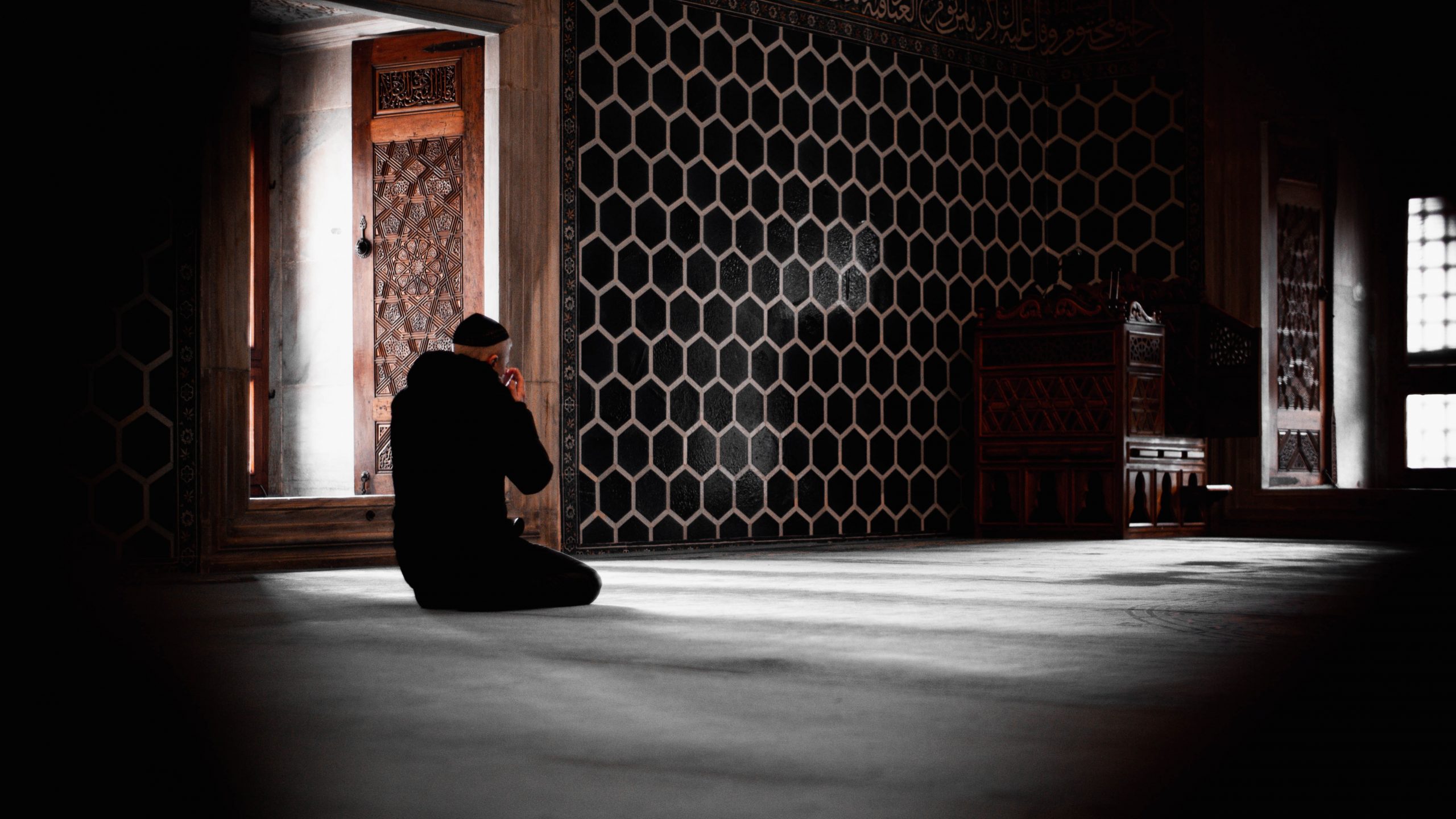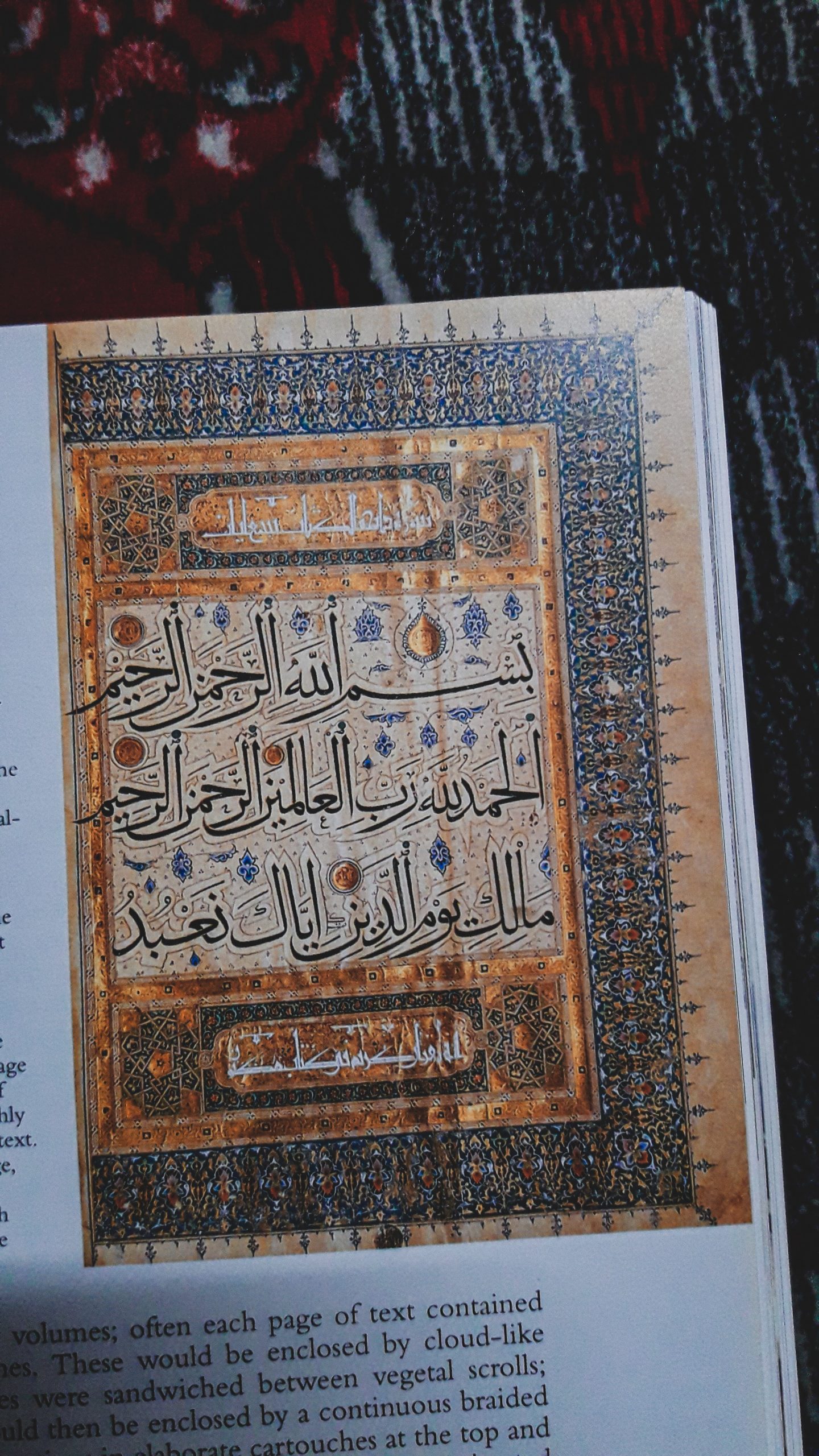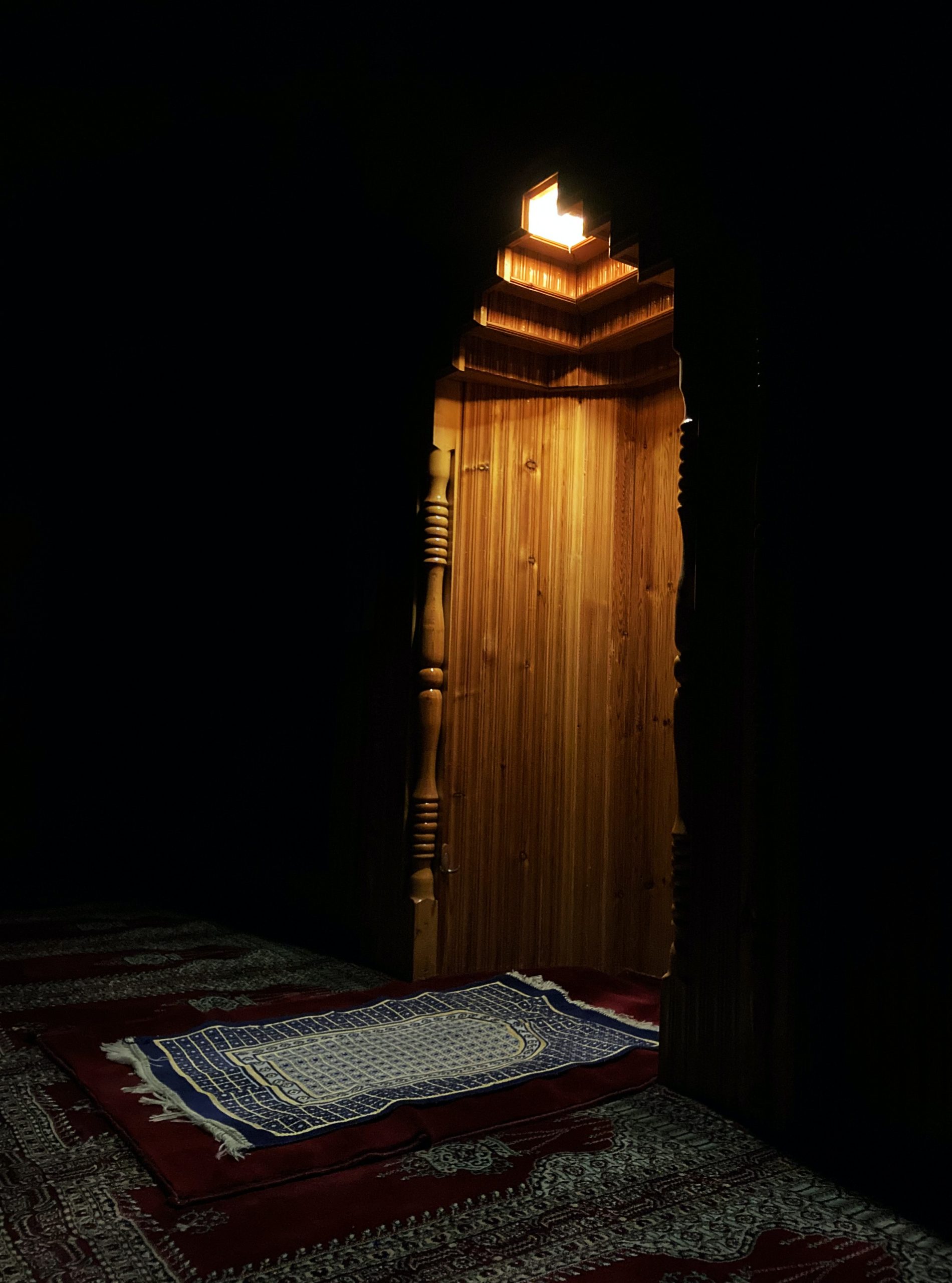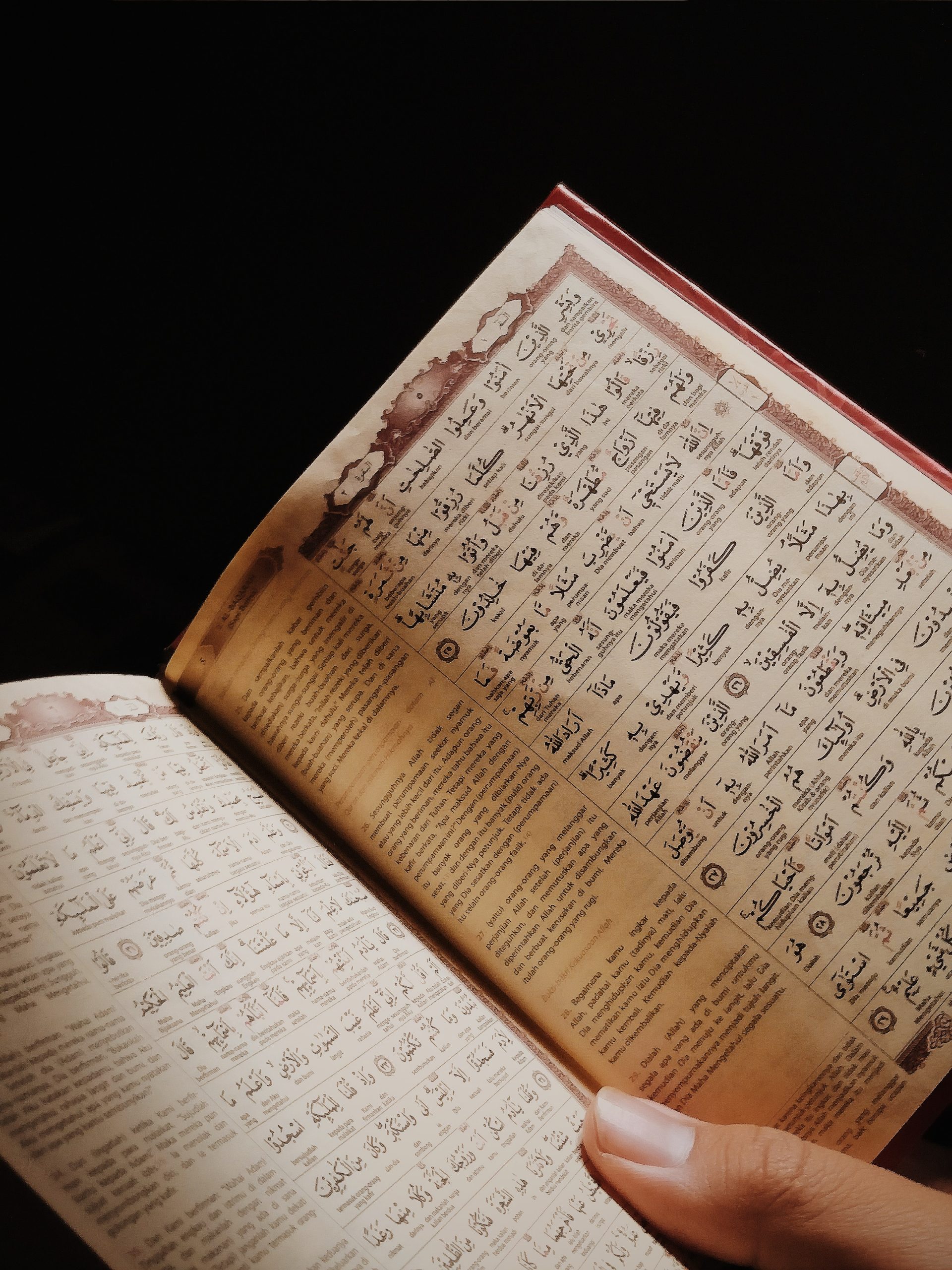#Islam
Finding Inner Peace Through Ibaadah
Published

Importance of Ibaadah
Ibaadah is the Arabic term for ritual acts of worship and is generally used to refer to acts like Salah, fasting, Hajj, Umrah, dhikr, and reciting Qur’an. Although, it does carry the broader meaning of any good thing done for the pleasure of Allah 
Doing acts of worship is how we fulfill the primary purpose of life, which is to worship Allah 


The general rule is that the closer you are to Allah 
On the authority of Abu Huraira who said: The Messenger of Allah (upon whom be Allah’s blessings and peace) said: “Allah the Almighty has said, ‘Whoever displays animosity towards a friend (wali) of Mine, I declare war upon him. My servant does not draw near to Me with anything more beloved to Me than the religious duties that I have obligated upon him; and My servant continues to draw near to Me with additional acts of worship such that I love him. And when I love him, I am his hearing with which he hears, his seeing with which he sees, his hand with which he strikes, and his leg with which he walks. Were he to ask of Me, I would surely give him; and were he to ask Me for refuge, I would surely grant him it.”
Nawawi’s 40 Hadith, Hadith No 38
Keep supporting MuslimMatters for the sake of Allah
Alhamdulillah, we're at over 850 supporters. Help us get to 900 supporters this month. All it takes is a small gift from a reader like you to keep us going, for just $2 / month.
The Prophet (SAW) has taught us the best of deeds are those that done consistently, even if they are small. Click here to support MuslimMatters with a monthly donation of $2 per month. Set it and collect blessings from Allah (swt) for the khayr you're supporting without thinking about it.
This hadith should not be misunderstood by taking the second half literally. It means that the closer a person gets to Allah 


The key message of this Hadith is that the way to get closer to Allah 


“Those who have believed and whose hearts are assured by the remembrance of Allah. Unquestionably, by the remembrance of Allah hearts are assured.” [Surah Ar-Rad: 13;28]
This means the more Ibaadah you do daily, the more at peace you are internally. As the primary acts of worship are those which are obligatory, we will focus on those first and then on the additional acts of worship.
Importance of Salah
The five daily salah are the most important acts of worship to establish. This is the second pillar of Islam, our primary link to Allah 
Abandoning the five daily Salah is likewise the primary cause of misguidance and leads to kufr. The Prophet 
It is important to note that when we are talking about the five daily Salah, we are referring primarily to the fard (obligatory) rakahs of each Salah, which are:
- Two rakah every morning before sunrise – Fajr
- Four rakah every afternoon after the sun begins its decline – Dhuhr
- Four rakah every mid-afternoon before sunset – ‘Asr
- Three rakah every evening after sunset – Maghrib
- Four rakah every night after total darkness sets in – ‘Isha
These are the obligatory Salah and our priority should be getting them in order. As for the additional prayers like two before Fajr, and two after Dhuhr, Maghrib, or ‘Isha, these are all optional and recommended. The priority should be on that which is obligatory and once that is in order, we should add to it these recommended Salahs.
The purpose of Salah is mentioned in two verses of the Qur’an and both objectives are linked to the development of Inner Peace. Allah 
“Indeed, I am Allah . There is no deity except Me, so worship Me and establish prayer for My remembrance.” [Surah Taha: 20;24]
and,
“Recite, [O Muhammad], what has been revealed to you of the Book and establish prayer. Indeed, prayer prohibits immorality and wrongdoing, and the remembrance of Allah is greater. And Allah knows that which you do.” [Surah Al-‘Ankaboot: 29;45]
Between these two verses, we can say that the primary purpose of Salah is to remind us of Allah 


However, this goal can only be accomplished if we pray with concentration, sincerity, and understanding. It is in this area that many of us have failed. For many Muslims today, Salah has been reduced to a ritual of movements and words that they do not understand or even care to understand. As a result, it has no impact on their hearts and lives and they do not experience the benefits of Salah.
In order to attain inner peace, Salah must be prayed with understanding, reflection, sincerity, and concentration. Sincerity is the first obligation. We must pray Salah solely for the pleasure of Allah 
After sincerity, the next condition is understanding. The best way to understand what we are reciting is to learn Arabic, yet for many Muslims this is difficult and unlikely. The next best step then is to at least learn the translation and explanation of what you recite in your Salah.
Understanding Surah Al-Fatiha

Allah 
Surah Al-Fatiha revolves around a dua’ for guidance and can be divided into two parts. The first half of the Surah describes Allah 
The Surah begins with Alhamdulillah (all praise is for Allah 

These five names summarize Who Allah 


The fourth verse lays down our relationship with Allah 


After affirming our belief in and worship of Allah 


The Surah closes off with two signs of the wrong paths: those who have earned Allah’s 
In this we have an important lesson: blind following and arrogance are obstacles on the path toward the truth. If we wish to find the truth, we need to abandon blindly following our forefathers, let go of our own egos, and ask Allah 
In summary, if you are confused about any issue of faith, there is no dua’ more powerful to make in such situations than Surah Al-Fatiha. Learn it and recite it with all your heart in every rakah of Salah.
Besides understanding Surah Al-Fatiha, it is important to learn the translation and explanations of anything else you recite in Salah.
Salah with Concentration
Besides understanding, we also must pray Salah with concentration. Salah is in many ways an exercise in focus, concentration, and developing inner peace. Allah 
“Those who pray their Salah with Khushoo (concentration and inner peace),” [Surah Al-Muminoon: 23;2]
as well as,
“Those who guard their Salah” [Surah Al-Muminoon: 23;9] (by not missing a prayer on time.)


The most important position in the Salah is the sajdah. Many people look at the sajdah as just another ritual aspect of the Salah, but in reality, it is the ultimate sign of submission to the Creator of the Heavens and earth. The sajdah is so important that we have two sajdahs in every rakah of Salah.
The Prophet 

The sajdah is supposed to be a time in which we make dua’ and pour our hearts out to Allah 

Following these steps will help transform our Salah into a beautiful experience that benefits us, brings us closer to Allah 
Once you have established the obligatory Salah as a regular part of your life, then build upon it by adding more Salah to your daily habits. Start with the two rakah before Fajr and the Witr after ‘Isha. These are recommended Salahs that the Prophet 
Then add the other recommended prayers to your habits like the two after Dhuhr, Maghrib, and Esha, and the Tahajjud (late night prayer).
Qiyam Al-Layl – The Night Prayer
Of all the extra Salah that one can pray, the Tahajjud is the most important in developing inner peace. The Tahajjud Salah is also known as the Qiyam Al-Layl (standing at night) Salah, as it is usually done by standing in prayer late at night. Some scholars give the term Qiyam Al-Layl a broader definition to include any acts of worship done late at night.
A lot of importance has been attached to the Qiyam Al-Layl in the Qur’an and Hadith. It is considered the most blessed time of the day to worship Allah 

For someone to wake up from their sleep at that time of the night solely to worship Allah 

There is a special peace in the air at this time of the night, and those who wake up to worship Allah 
Quran and Reflection






The revelation sent to the prophet Muhammad 
As Muslims, we all accept and believe that the Quran is the final revelation, God’s word, and a miracle; thus we should make an extra effort to understand and practice the teachings it contains. As the Quran itself testifies that we were created in this world as a test, to see who will follow and submit to Allah 

However, even though this is what Islam teaches and Muslims are supposed to do, we find that today in many homes, the Quran is rarely read; even rarer is it understood, and sadly we find many of us don’t follow it. The Prophet 
Allah 

‘Oh my Lord, indeed my people have deserted this Quran,” [Surah Furqaan: 25;30]
We need to ask ourselves, are we from those who the Prophet is saddened that we deserted the Quran, or are we from those who the Prophet will be proud of as his followers on the Last Day?
Thus, understanding the Qur’an is crucial for understanding Islam as Allah 
“This is the book about which there is no doubt, it is a guidance for those who are God-Conscious,” [Surah Baqara: 2;2]
We need to establish a connection with the word of Allah 
We too, in order to connect with Allah 
The best way to understand the Qur’an would be to learn Arabic and tafseer. Most Muslims are unable to do this, so at the very least, we should read the translation of the Qur’an and attend tafseer classes.
Set a time every day, a time when you feel you need the Qur’an most, to recite the Arabic, read the translation, and reflect on its meanings.
If there are any tafseer classes in your area, you should attend them regularly. If not, download a tafseer lecture series from a reputable website and follow it closely. Studying tafseer under a qualified teacher is important to help us understand the deeper meanings and more complex issues in the Qur’an.
Making Time
Many people complain that they don’t have time to do these extra acts of worship. We tell ourselves that our lives are too busy to make time for reciting Qur’an or even praying on time.
Simply put, if something is important to you, you will make time for it. A lack of time is self-delusion and simply an excuse to avoid worshipping Allah 

By ignoring Him, and refusing to worship Him, we only deny ourselves all the benefits of being close to Allah 
We make time for all the important people in our lives, but isn’t our relationship with Allah 
If you think about it, most of these acts of worship take no more than a few minutes, some even take just a few seconds. How long would it take you to say “Alhamdulillah” when something good happens? How long would it take to recite and reflect on the Qur’an every day? How long would it take to pray two rakah of Fajr Salah every morning?
The only way to gain inner peace is to make Allah 

When you plan your day, plan it around the five daily Salah and schedule in time for reciting Qur’an and for studying Islam. Make these things a priority, just like we make our families a priority in our lives.
If you utilize To-Do Lists, then adding these acts of worship to your To-Do list is a good way to discipline yourself to make time for it, as we tend to regard the tasks on our To-Do List as most important in our day.
The article was first published here.
Related reading:
– 3 Ways to Keep Your Acts of Worship Sincerely For The Sake of Allah Alone
– Podcast: Prayer is a Work in Progress | Shaykh Abdullah Ayaaz Mullanee
Keep supporting MuslimMatters for the sake of Allah
Alhamdulillah, we're at over 850 supporters. Help us get to 900 supporters this month. All it takes is a small gift from a reader like you to keep us going, for just $2 / month.
The Prophet (SAW) has taught us the best of deeds are those that done consistently, even if they are small. Click here to support MuslimMatters with a monthly donation of $2 per month. Set it and collect blessings from Allah (swt) for the khayr you're supporting without thinking about it.
Shaykh Ismail Kamdar is the Books PO at Yaqeen Institute for Islamic Research. He is also the founder of Islamic Self Help and Izzah Academy. He completed the Alimiyyah Program in 2006, and a BA in Islamic Studies in 2014, specializing in Fiqh, Tafsir, and History. He is the author of over a dozen books in the fields of Islamic Studies and personal development.


Parenting Through Times Of Fear, Injustice, And Resistance: A Trauma-Informed, Faith-Centered Guide

Recognizing Allah’s Mercy For What It Is: Reclaiming Agency Through Ramadan

[Podcast] Dropping the Spiritual Baggage: Overcoming Malice Before Ramadan | Ustadh Justin Parrott

Far Away [Part 8] – Refugees At The Gate

[Podcast] Guardians of the Tradition: Muslim Women & Islamic Education | Anse Tamara Gray

Op-Ed: From Pakistan To Gaza – Why Senator Mushtaq Ahmad Khan Terrifies Power And Zionism

[Podcast] Should Muslims Ally with Conservatives or Progressives? | Imam Dawud Walid

The Sandwich Carers: Navigating The Islamic Obligation Of Eldercare

How to Make this Ramadan Epic | Shaykh Muhammad Alshareef

Keeping The Faith After Loss: How To Save A Grieving Heart

[Podcast] Guardians of the Tradition: Muslim Women & Islamic Education | Anse Tamara Gray

How to Make this Ramadan Epic | Shaykh Muhammad Alshareef

[Dhul Hijjah Series] Calling Upon the Divine: The Art of Du’a (Part 1)

IOK Ramadan 2025: Four Steps | Sh Zaid Khan

IOK Ramadan 2025: Do Your Best | Sh Zaid Khan
MuslimMatters NewsLetter in Your Inbox
Sign up below to get started
Trending
-
#Current Affairs1 month ago
An Iqbalian Critique Of Muslim Politics Of Power: What Allamah Muhammad Iqbal’s Writings Teach Us About Political Change
-
#Current Affairs4 weeks ago
Op-Ed: From Pakistan To Gaza – Why Senator Mushtaq Ahmad Khan Terrifies Power And Zionism
-
#Current Affairs3 weeks ago
[Podcast] Should Muslims Ally with Conservatives or Progressives? | Imam Dawud Walid
-
#Culture1 month ago
The Muslim Book Awards 2025 Winners
















Batman
February 25, 2023 at 8:43 AM
“As for the additional prayers like two before Fajr, and two after Dhuhr, Maghrib, or ‘Isha, these are all optional and recommended.”
You missed 4 rakah before Dhuhr and 3 witr after Isha. And they are not optional salah but Sunnah muakkadah, therefore compulsory.